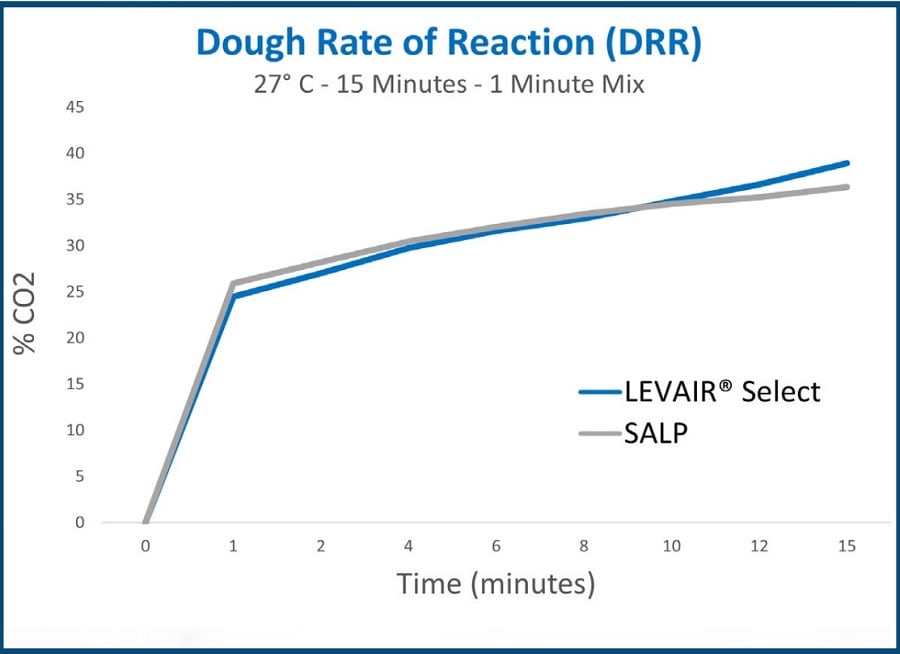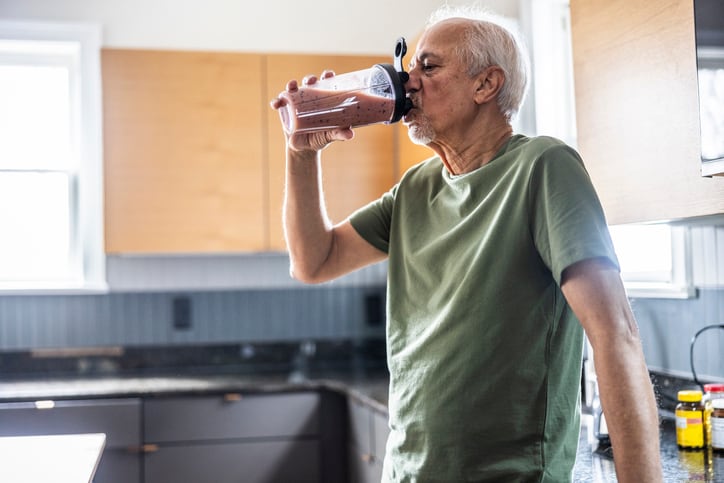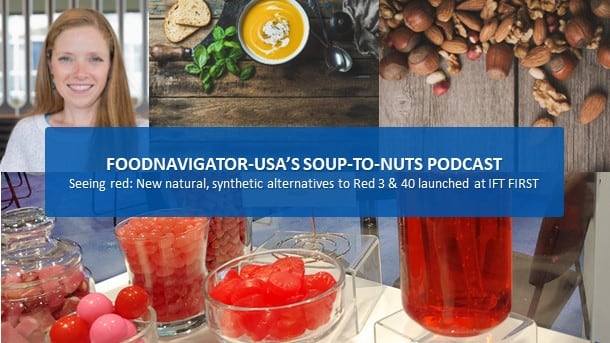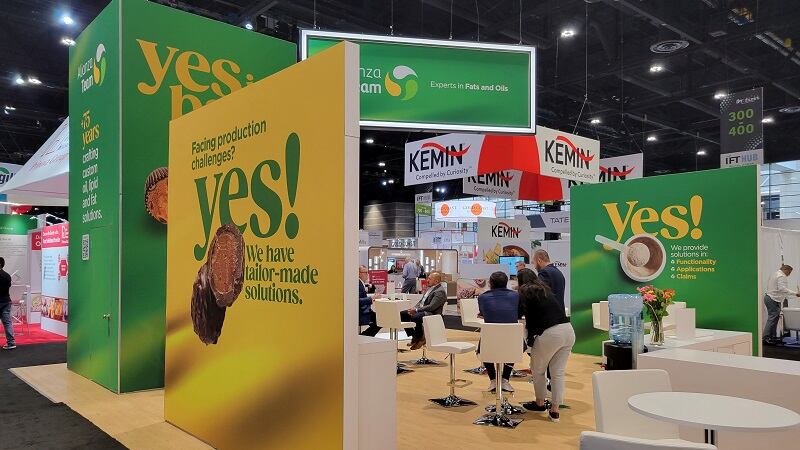Specialty ingredient provider Innophos’ non-aluminum leavening solution Levair Select closely mirrors the performance of SALP with added benefits of reducing sodium and increasing calcium as well as supporting bench, floor and line tolerance, Deanna Pfeifer, marketing associate manager for Innophos, told FoodNavigator-USA at IFT FIRST Annual Event & Expo in Chicago earlier this summer.
She explained that SALP is often the go-to for baked goods because of its versatility across applications with diverse needs, but Innophos’ innovative new non-aluminum leavening technology has a nearly identical speed of leavening – called dough rate reaction – and can produce similar lift and texture across applications.
Tests conducted by Innophos show Levair Select’s DRR at two and eight minutes at 26.5% and 32.4% carbon dioxide release compared to SALP’s 28.3% and 33.7% at the same points. In addition, Levair Select has less than 0.1% of sodium compared to SALP’s 2% and offers 17% calcium compared to less than 0.1% for SALP.
This “break-through” ingredient offers manufacturers a higher performing alternative to other non-aluminum leavening agents, which are not as diverse, and a clean-label option as consumers increasingly demand aluminum-free products, she said.
A versatile leavening agent that performs ‘just like SALP’
Before Levair Select, manufactures had limited options to replace SALP – all of which came with trade offs in lift, texture or other characteristics that consumers value in baked goods.
“Selecting the correct leavening agent is important for many reasons, and it is tailored to the specific requirements of different [products],” depending on how quickly dough is expected to rise and how high, Paige Neher, an associate scientist with Innophos explained at IFT FIRST.
For example, she said, frozen or refrigerated rolls, loaves and other products intended to be baked by consumers at home require a slow acting leavening agent because they need a controlled release of gas during thawing and baking to ensure proper rise and, more importantly, to prevent the loss of carbon dioxide necessary for lift during storage. Muffins, on the other hand, need a medium release of gas to ensure proper rise during mixing without over expanding. Finally, products like pancake mixes require fast acting leavening agents because they have shorter cook times and need to start producing gas and bubbles in the batter while mixing.
While there are leavening agents that perform well in each of these specific situations, few work across applications as well as SALP – making it difficult to replace, Neher said.
Innophos’ Levair Select, however, performs well across multiple applications, including biscuits, cakes, muffins, pancakes and tortillas, thanks in part to its similar dough rate of reaction to SALP, Neher explained.
For example, both Levair Select and SALP have less than 5% carbon dioxide release at refrigerated conditions, and they have a similar DRR at room temperature – making Levair Select ideal for both refrigerated and frozen products as well as cake mixes, self-rising flours, donuts, sponge cakes and muffins, Neher said.

Furthermore, both have a similar bench tolerance, said Neher. After 20 minutes at 100 degrees Fahrenheit, Levair Select has a less than 4% difference in the change of batter flow and a less than 8% difference in the change in specific gravity compared to SALP.
A changing retail, regulatory landscape
Beyond replicating SALP’s performance, Levair Select can also meet demand for clean label ingredients led by consumers and enforced by regulators in some regions, said Neher.
For example, she noted, in 2014 the European Union submitted regulations to enforce maximum levels of aluminum to better align with health and safety considerations of consumers. Likewise, in 2019 several nations in South America banned self-rising flour with aluminum-containing leavening agents, and last March Health Canada proposed restrictions to remove aluminum from the list of approved additives.
“At this time, the regulations have not yet reached the US, where SALP is still Generally Recognized As Safe by the FDA for use for its intended purposes following good manufacturing practices,” Neher said. But, she added, US consumers still want aluminum-free alternatives, and many US retailers and manufacturers are proactively removing these ingredients from their products and shelves today.
“Among those retailers are Whole Foods Market, Panera Bread and Trade Joe’s,” Neher said.
In response, global launches of products with aluminum-free leavening have grown at a 10% compound annual growth rate of 10% between 2020 and 2022, she added.




